 Tìm kiếm
Tìm kiếm
Chương V Luật giáo dục 2019: Người học
| Số hiệu: | 43/2019/QH14 | Loại văn bản: | Luật |
| Nơi ban hành: | Quốc hội | Người ký: | Nguyễn Thị Kim Ngân |
| Ngày ban hành: | 14/06/2019 | Ngày hiệu lực: | 01/07/2020 |
| Ngày công báo: | 20/07/2019 | Số công báo: | Từ số 569 đến số 570 |
| Lĩnh vực: | Giáo dục | Tình trạng: | Còn hiệu lực |
TÓM TẮT VĂN BẢN
Văn bản tiếng việt
Văn bản tiếng anh
Người học là người đang học tập tại cơ sở giáo dục trong hệ thống giáo dục quốc dân bao gồm:
1. Trẻ em của cơ sở giáo dục mầm non;
2. Học sinh của cơ sở giáo dục phổ thông, lớp đào tạo nghề, trung tâm giáo dục nghề nghiệp - giáo dục thường xuyên, trung tâm giáo dục nghề nghiệp, trường trung cấp, trường dự bị đại học;
3. Sinh viên của trường cao đẳng, trường đại học;
4. Học viên của cơ sở đào tạo thạc sĩ;
5. Nghiên cứu sinh của cơ sở đào tạo tiến sĩ;
6. Học viên theo học chương trình giáo dục thường xuyên.
1. Trẻ em tại cơ sở giáo dục mầm non có các quyền sau đây:
a) Được chăm sóc, nuôi dưỡng, giáo dục theo chương trình giáo dục mầm non do Bộ trưởng Bộ Giáo dục và Đào tạo ban hành; được chăm sóc sức khỏe và bảo vệ theo quy định của Luật Trẻ em và quy định khác của pháp luật có liên quan;
b) Được miễn, giảm giá vé đối với các dịch vụ vui chơi, giải trí công cộng.
2. Chính phủ quy định chính sách đối với trẻ em tại cơ sở giáo dục mầm non.
1. Học tập, rèn luyện theo chương trình, kế hoạch giáo dục, quy tắc ứng xử của cơ sở giáo dục.
2. Tôn trọng nhà giáo, cán bộ và người lao động của cơ sở giáo dục; đoàn kết, giúp đỡ lẫn nhau trong học tập, rèn luyện; thực hiện nội quy, điều lệ, quy chế của cơ sở giáo dục; chấp hành quy định của pháp luật.
3. Tham gia lao động và hoạt động xã hội, hoạt động bảo vệ môi trường phù hợp với lứa tuổi, sức khỏe và năng lực.
4. Giữ gìn, bảo vệ tài sản của cơ sở giáo dục.
5. Góp phần xây dựng, bảo vệ và phát huy truyền thống của cơ sở giáo dục.
1. Được giáo dục, học tập để phát triển toàn diện và phát huy tốt nhất tiềm năng của bản thân.
2. Được tôn trọng; bình đẳng về cơ hội giáo dục và học tập; được phát triển tài năng, năng khiếu, sáng tạo, phát minh; được cung cấp đầy đủ thông tin về việc học tập, rèn luyện của mình.
3. Được học vượt lớp, học rút ngắn thời gian thực hiện chương trình, học ở độ tuổi cao hơn tuổi quy định, học kéo dài thời gian, học lưu ban, được tạo điều kiện để học các chương trình giáo dục theo quy định của pháp luật.
4. Được học tập trong môi trường giáo dục an toàn, lành mạnh.
5. Được cấp văn bằng, chứng chỉ, xác nhận sau khi tốt nghiệp cấp học, trình độ đào tạo và hoàn thành chương trình giáo dục theo quy định.
6. Được tham gia hoạt động của đoàn thể, tổ chức xã hội trong cơ sở giáo dục theo quy định của pháp luật.
7. Được sử dụng cơ sở vật chất, thư viện, trang thiết bị, phương tiện phục vụ các hoạt động học tập, văn hóa, thể dục, thể thao của cơ sở giáo dục.
8. Được trực tiếp hoặc thông qua đại diện hợp pháp của mình kiến nghị với cơ sở giáo dục các giải pháp góp phần xây dựng cơ sở giáo dục, bảo vệ quyền, lợi ích của người học.
9. Được hưởng chính sách ưu tiên của Nhà nước trong tuyển dụng vào các cơ quan nhà nước nếu tốt nghiệp loại giỏi và có đạo đức tốt.
10. Được cử người đại diện tham gia hội đồng trường theo quy định.
Nhà nước có chính sách tín dụng ưu đãi về lãi suất, điều kiện và thời hạn vay tiền để người học có điều kiện học tập. Khuyến khích xã hội hóa hoạt động tín dụng giáo dục.
1. Nhà nước có chính sách cấp học bổng khuyến khích học tập cho học sinh đạt kết quả học tập xuất sắc ở trường chuyên, trường năng khiếu quy định tại Điều 62 của Luật này và người học có kết quả học tập, rèn luyện từ loại khá trở lên ở cơ sở giáo dục nghề nghiệp, cơ sở giáo dục đại học; cấp học bổng chính sách cho sinh viên hệ cử tuyển, học sinh trường dự bị đại học, trường phổ thông dân tộc nội trú, người học trong cơ sở giáo dục nghề nghiệp dành cho thương binh, người khuyết tật.
2. Nhà nước có chính sách trợ cấp và miễn, giảm học phí cho người học là đối tượng được hưởng chính sách xã hội, người dân tộc thiểu số ở vùng có điều kiện kinh tế - xã hội đặc biệt khó khăn, trẻ mồ côi, trẻ em không nơi nương tựa, người khuyết tật, người thuộc hộ nghèo và hộ cận nghèo.
3. Nhà nước khuyến khích tổ chức, cá nhân cấp học bổng hoặc trợ cấp cho người học theo quy định của pháp luật.
4. Học sinh, sinh viên sư phạm được hỗ trợ tiền đóng học phí và chi phí sinh hoạt trong toàn khóa học. Người được hỗ trợ tiền đóng học phí và chi phí sinh hoạt sau 02 năm kể từ khi tốt nghiệp nếu không công tác trong ngành giáo dục hoặc công tác không đủ thời gian quy định thì phải bồi hoàn khoản kinh phí mà Nhà nước đã hỗ trợ. Thời hạn hoàn trả tối đa bằng thời gian đào tạo.
Học sinh, sinh viên sư phạm được hưởng các chính sách học bổng khuyến khích học tập, trợ cấp xã hội, miễn, giảm học phí quy định tại khoản 1 và khoản 2 Điều này.
5. Chính phủ quy định chi tiết Điều này.
Học sinh, sinh viên được hưởng chế độ miễn, giảm giá vé khi sử dụng các dịch vụ công cộng về giao thông, giải trí, tham quan viện bảo tàng, di tích lịch sử, công trình văn hóa theo quy định của Chính phủ.
1. Nhà nước thực hiện tuyển sinh vào trung cấp, cao đẳng, đại học theo chế độ cử tuyển đối với học sinh là người dân tộc thiểu số rất ít người; học sinh là người dân tộc thiểu số ở vùng có điều kiện kinh tế - xã hội đặc biệt khó khăn chưa có hoặc có rất ít cán bộ, công chức, viên chức là người dân tộc thiểu số; có chính sách tạo nguồn cử tuyển, tạo điều kiện thuận lợi để các đối tượng này vào học trường phổ thông dân tộc nội trú và tăng thời gian học dự bị đại học.
2. Ủy ban nhân dân cấp tỉnh căn cứ vào nhu cầu của địa phương đề xuất, phân bổ chỉ tiêu cử tuyển; cử người đi học theo tiêu chuẩn, chỉ tiêu được duyệt; xét tuyển và bố trí việc làm cho người học sau khi tốt nghiệp.
Cơ sở giáo dục có trách nhiệm hỗ trợ cho người học theo chế độ cử tuyển để bảo đảm chất lượng đầu ra.
3. Người học theo chế độ cử tuyển có trách nhiệm trở về làm việc tại địa phương nơi cử đi học; được xét tuyển và bố trí việc làm.
4. Chính phủ quy định chi tiết tiêu chuẩn và đối tượng được hưởng chế độ cử tuyển; việc tổ chức thực hiện chế độ cử tuyển và việc tuyển dụng người học theo chế độ cử tuyển sau khi tốt nghiệp.
Người học có thành tích trong học tập, rèn luyện được cơ sở giáo dục, cơ quan quản lý giáo dục khen thưởng; trường hợp có thành tích đặc biệt xuất sắc được khen thưởng theo quy định của pháp luật.
LEARNERS
Section 1. DUTIES AND RIGHTS OF LEARNERS
Learners are persons currently learning at educational institutions of the national educational system. Learners include:
1. Children at preschool education institutions;
2. Students at general education institutions, vocational training classes, vocational - continuing education centers, vocational education centers, vocational secondary schools and pre-university schools;
3. Students at colleges and universities;
4. Students at institutions providing master education;
5. Doctoral candidates at institutions providing doctoral education;
6. Learners of continuing educational programmes.
Article 81. Rights of and policies for children at institutions of preschool education
1. Children at preschool education institutions have the right to:
a) Receive care, nurture and education according to programmes of preschool education promulgated by the Minister of Education and Training; to receive health care and protection as prescribed in the Children Law and other relevant regulations; and
b) Receive discounts on public entertainment services.
2. The Government shall issue policies for children at institutions of preschool education.
Article 82. Duties of learners
1. Perform learning and training tasks according to educational programmes and plans, code of conduct of educational institutions.
2. Participate in labour and social activities, environmental protection activities appropriate to their age group, health and ability.
4. Preserve and protect properties of educational institutions.
5. Contribute to the building, protection and development of the traditions of educational institutions.
Article 83. Rights of learners
Learners have the right to:
1. Receive education and training so as to develop comprehensively and realize their potentials to the fullest.
2. Receive respect; equal opportunities in education and learning; to have their talents, gifts, creations and inventions developed; to receive full information concerning their own learning and training.
3. Have the possibility of leaping grades, shortening programme duration, learning at an age higher than regulated, extending programme duration or repeating class, be enabled to learn educational programmes as prescribed by law.
4. Learn in a safe and healthy educational environment.
5. Be awarded degrees/diplomas or certificates after completing educational levels, training qualifications or completing educational programmes as prescribed by law.
6. Participate in collective activities in educational institutions in accordance with the law.
7. Use infrastructure, libraries, equipment and facilities assigned to learning, cultural, sporting, athletic activities at educational institutions.
8. Submit, directly or through their legal representatives, to educational institutions measures for the improvement of educational institutions, to protect learners' rights and interests.
9. Benefit from preferential State policies in recruitment into State agencies upon graduation with excellent records and good conduct.
10. Elect representatives for school council as prescribed by law.
Section 2. POLICIES FOR LEARNERS
Article 84. Educational credits
The State shall issue preferential credit policies concerning interest rates, credit's conditions and duration to enable learners to study. Encourage private sector involvement in educational credits.
Article 85. Scholarships, social subsidies, tuition exemption/reduction, subsidies on tuition and living costs
1. The State shall issue policies on granting academic scholarships to students with excellent scholastic achievements at specialized schools, schools for gifted students as stipulated in Article 62 of this Law and to learners with good academic and training results or higher at institutions of vocational education and higher education; on granting policy scholarships to students enrolled by form of nomination, students at pre-university schools, boarding general education schools for ethnic minorities, learners at vocational education institutions for war invalids, disabled and handicapped persons.
2. The State shall elaborate policies on subsidies and exemption/reduction of tuition for learners from social policy targeted groups, ethnic minorities in areas with exceptional socio-economic difficulties, homeless orphans, disabled and handicapped persons, persons of poor and near-poor households.
3. The State shall encourage organisations and individuals to grant scholarships or subsidies to learners as prescribed by law.
4. Students at pedagogical institutions will receive subsidies on tuition and living costs throughout the entirety of the course. 02 years after graduation, if persons that receive the subsidies do not work in the field of education or fail to work in education for a sufficient duration, they will have to reimburse the State for the subsidies. The maximum time limit for reimbursement is equal to the training duration.
Students at pedagogical institutions are entitled to academic incentive scholarships, social subsidies, tuition exemption/reduction as prescribed in clause 1 and clause 2 of this Article.
5. The Government shall provide for this Article.
Article 86. Exemption, reduction of public service fees for students, students
Students and students are entitled to fee exemption or reduction when using public services in transportation, entertainment, and visits to museums, historical relics and cultural attractions as stipulated by the Government.
Article 87. Admission by form of nomination
1. The State shall grant admission into vocational secondary schools, colleges and universities by means of nomination for students from ethnic minorities with sparse population; students from ethnic minorities living in areas with exceptional socio-economic difficulties and have no or few officials/public employees who are of ethnic minorities; issue policies on formation of nominated admission source, enabling the regulated entities to enter boarding general education schools for ethnic minorities and increasing pre-university learning time.
2. People's Committees at provincial level, based on the needs of their localities, shall propose and allocate nomination quotas; selecting persons according to approved criteria and quotas; recruiting and assigning jobs for learners after graduation.
Educational institutions shall be responsible for assisting learners admitted by form of nomination so as to ensure outcome quality.
3. Students of this nomination mode shall be responsible for returning to work for the locality sending them to study; be recruited and assigned jobs.
4. The Government shall regulate criteria and beneficiaries of the nomination mode; organize the implementation of the nomination mode and employment of learners of nomination mode after graduation.
Article 88. Awards for learners
Learners with excellent achievements in learning and training shall be awarded by educational institutions or education authorities; in case of exceptional achievements, the awards shall be issued as regulated by law.
Cập nhật
Bài viết liên quan
Mẫu đơn xin nhập học Đại học mới nhất 2025
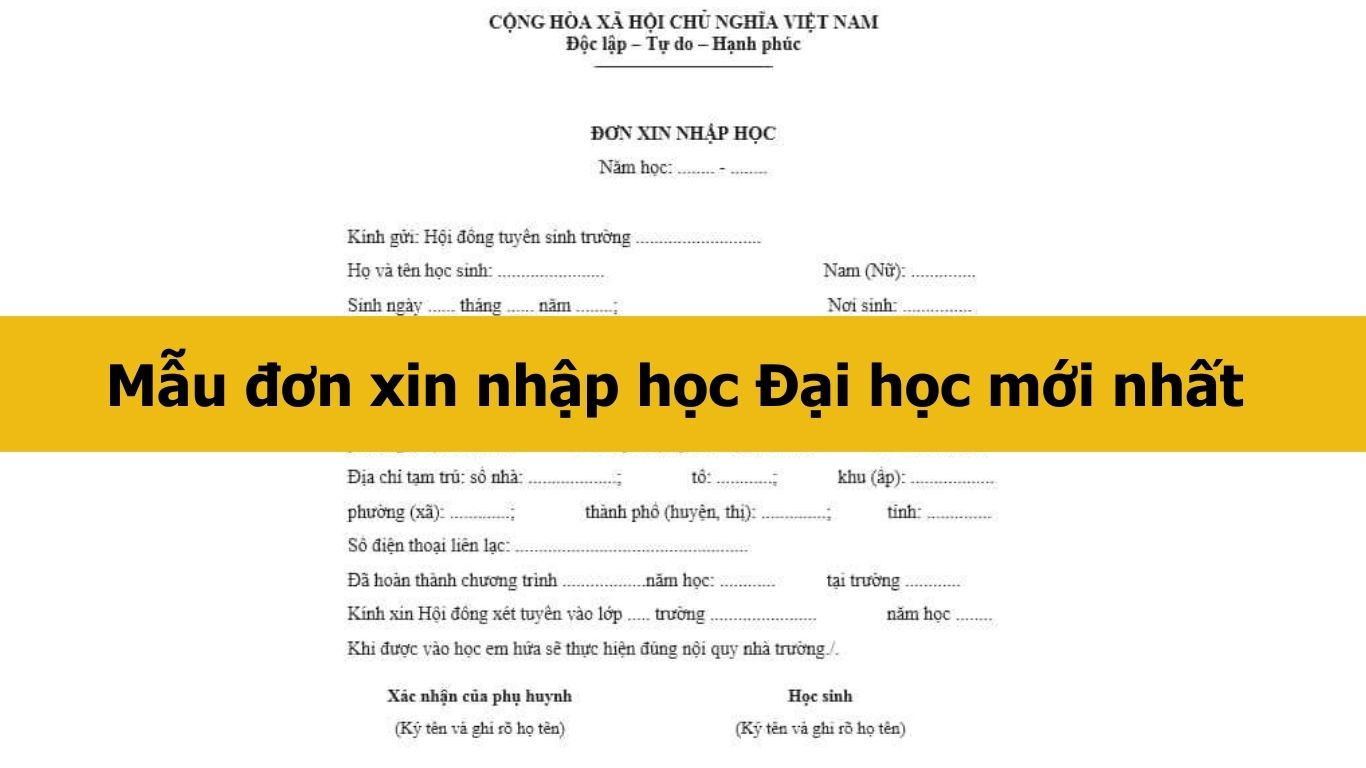
Mẫu đơn xin nhập học Đại học mới nhất 2025
Hiện nay, để chuyển đổi cấp học Đại học trong hệ thống giáo dục Việt Nam thì ngoài các tiêu chuẩn về trình độ, nhận thức còn có một thủ tục trước khi nhập vào cấp học này là phải có đơn xin nhập học. Nhiều phụ huynh còn phân vân chưa biết sử dụng mẫu đơn xin nhập học nào cho đúng. Qua bài viết này, chúng tôi sẽ giúp các bạn có được các mẫu đơn xin nhập học Đại học mới nhất và cách viết phù hợp. 20/01/2025Mẫu đơn xin nhập học THPT mới nhất 2025
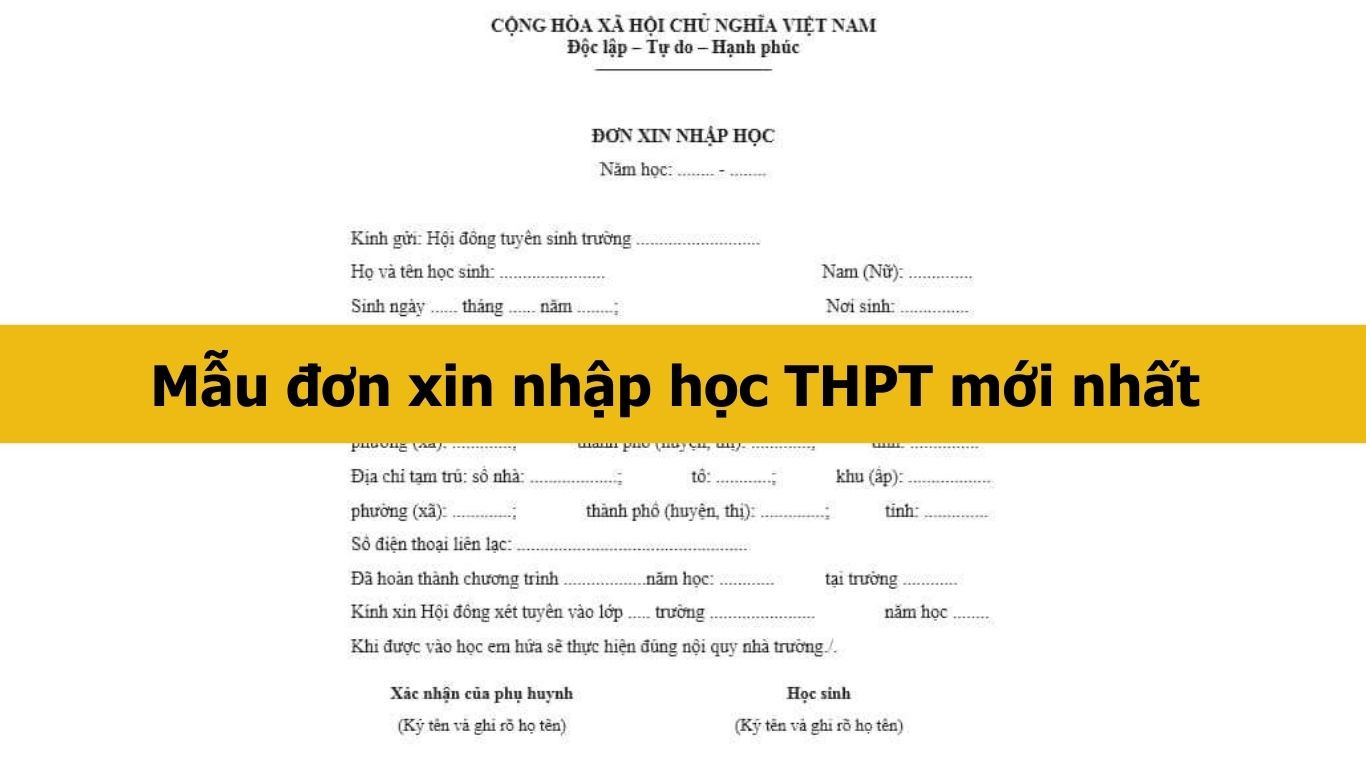
Mẫu đơn xin nhập học THPT mới nhất 2025
Hiện nay, để chuyển đổi cấp học THPT trong hệ thống giáo dục Việt Nam thì ngoài các tiêu chuẩn về trình độ, nhận thức còn có một thủ tục trước khi nhập vào cấp học này là phải có đơn xin nhập học. Nhiều phụ huynh còn phân vân chưa biết sử dụng mẫu đơn xin nhập học nào cho đúng. Qua bài viết này, chúng tôi sẽ giúp các bạn có được các mẫu đơn xin nhập học THPT mới nhất và cách viết phù hợp. 20/01/2025Mẫu đơn xin nhập học THCS mới nhất 2025
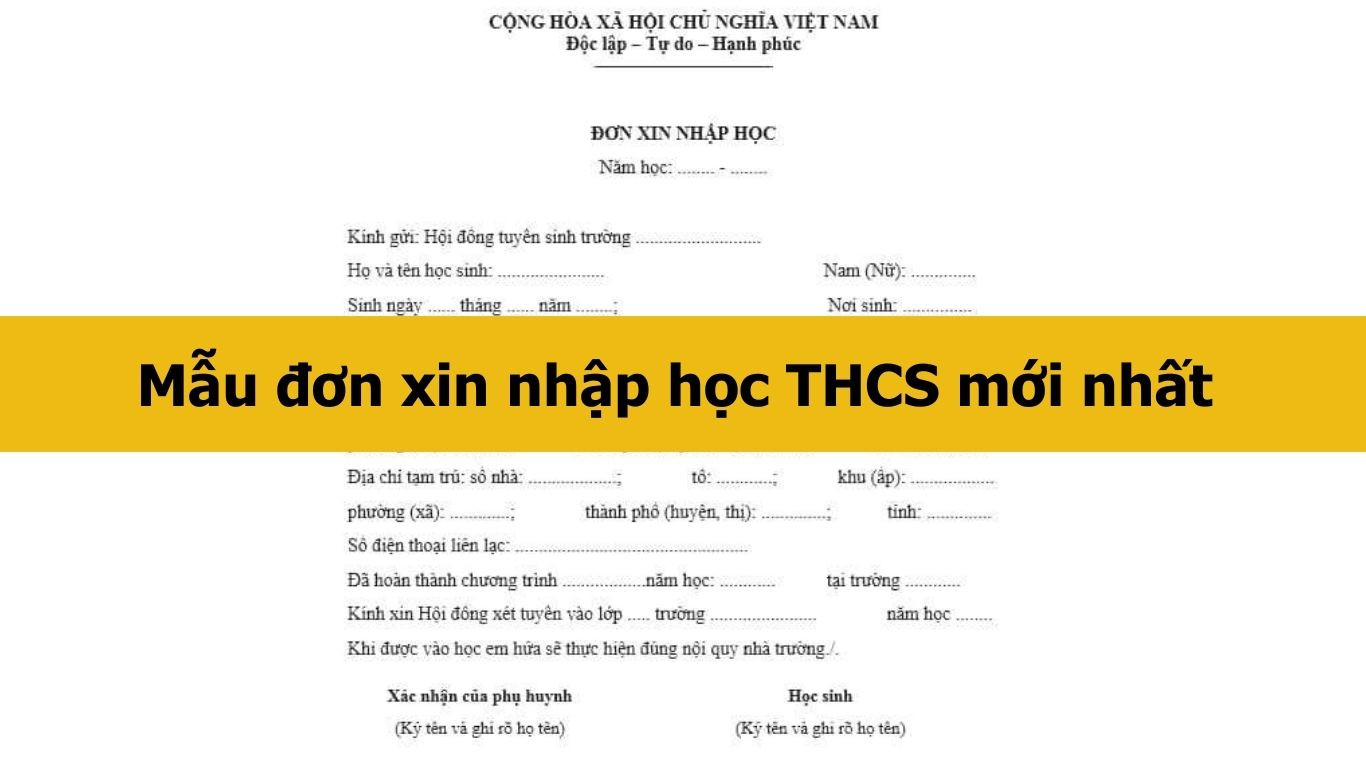
Mẫu đơn xin nhập học THCS mới nhất 2025
Hiện nay, để chuyển đổi cấp học THCS trong hệ thống giáo dục Việt Nam thì ngoài các tiêu chuẩn về trình độ, nhận thức còn có một thủ tục trước khi nhập vào cấp học này là phải có đơn xin nhập học. Nhiều phụ huynh còn phân vân chưa biết sử dụng mẫu đơn xin nhập học nào cho đúng. Qua bài viết này, chúng tôi sẽ giúp các bạn có được các mẫu đơn xin nhập học THCS mới nhất và cách viết phù hợp. 20/01/2025Mẫu đơn xin nhập học tiểu học mới nhất 2025
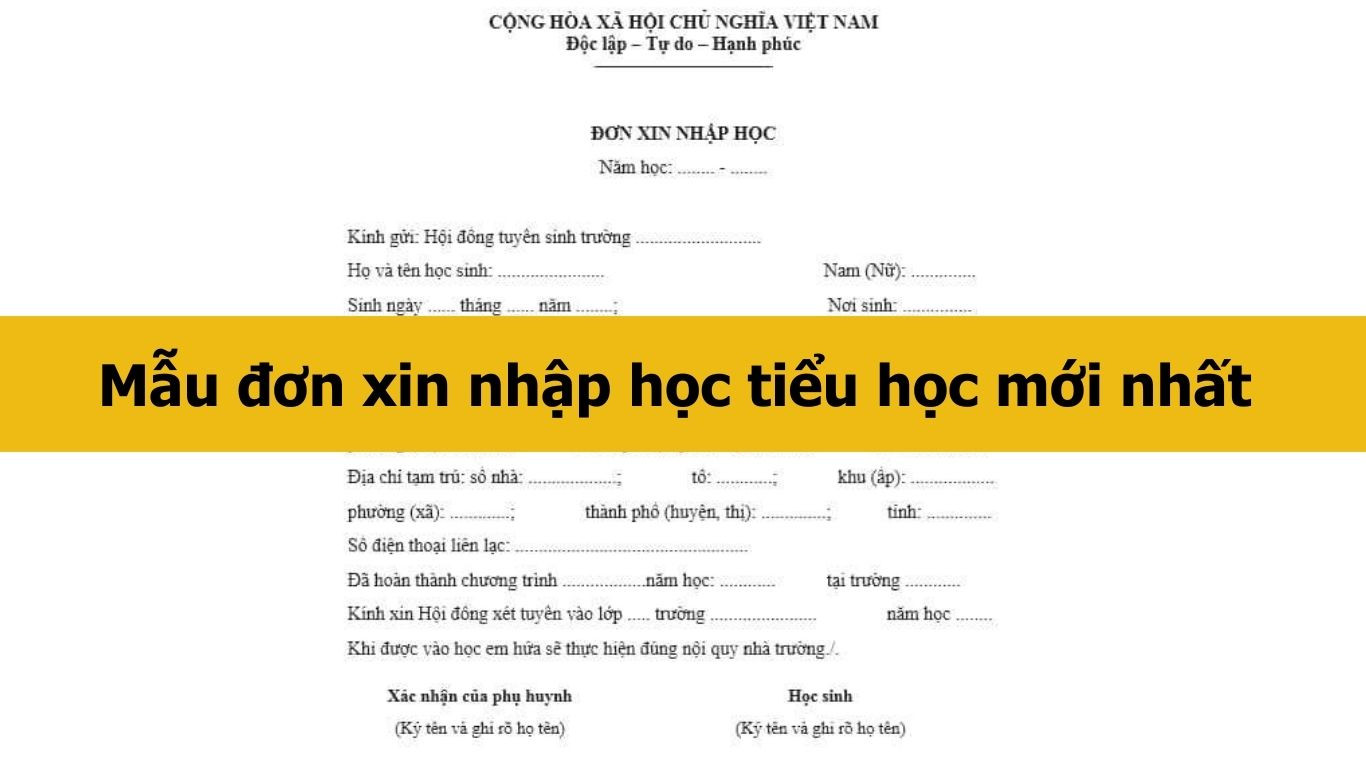
Mẫu đơn xin nhập học tiểu học mới nhất 2025
Hiện nay, để chuyển đổi cấp học tiểu học trong hệ thống giáo dục Việt Nam thì ngoài các tiêu chuẩn về trình độ, nhận thức còn có một thủ tục trước khi nhập vào cấp học này là phải có đơn xin nhập học. Nhiều phụ huynh còn phân vân chưa biết sử dụng mẫu đơn xin nhập học nào cho đúng. Qua bài viết này, chúng tôi sẽ giúp các bạn có được các mẫu đơn xin nhập học tiểu học mới nhất và cách viết phù hợp. 20/01/2025Mẫu đơn xin nhập học mầm non mới nhất 2025 và cách ghi chi tiết
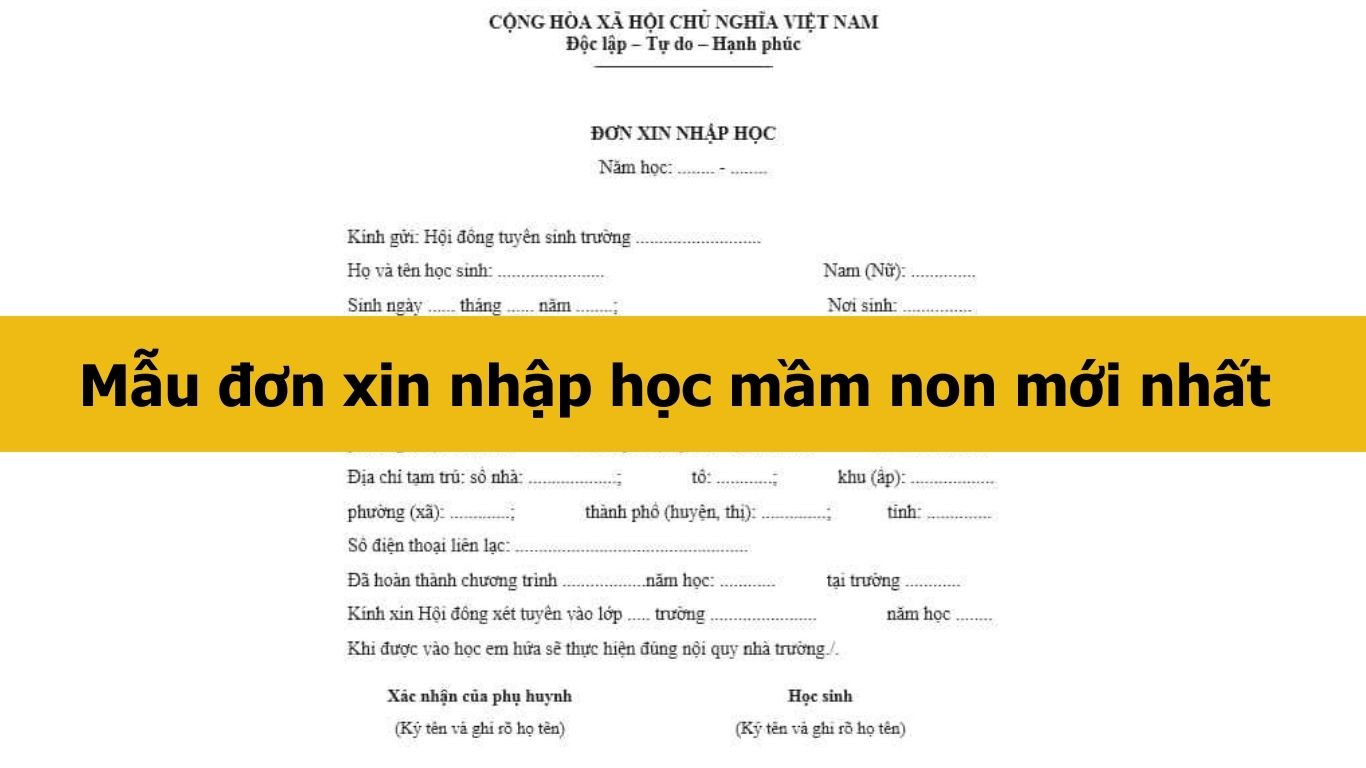
Mẫu đơn xin nhập học mầm non mới nhất 2025 và cách ghi chi tiết
Hiện nay, để chuyển đổi cấp học mầm non trong hệ thống giáo dục Việt Nam thì ngoài các tiêu chuẩn về trình độ, nhận thức còn có một thủ tục trước khi nhập vào cấp học này là phải có đơn xin nhập học. Nhiều phụ huynh còn phân vân chưa biết sử dụng mẫu đơn xin nhập học nào cho đúng. Qua bài viết này, chúng tôi sẽ giúp các bạn có được các mẫu đơn xin nhập học mầm non mới nhất và cách viết phù hợp. 20/01/202503 mẫu đơn xin nhập học mới nhất 2025 và hướng dẫn cách viết
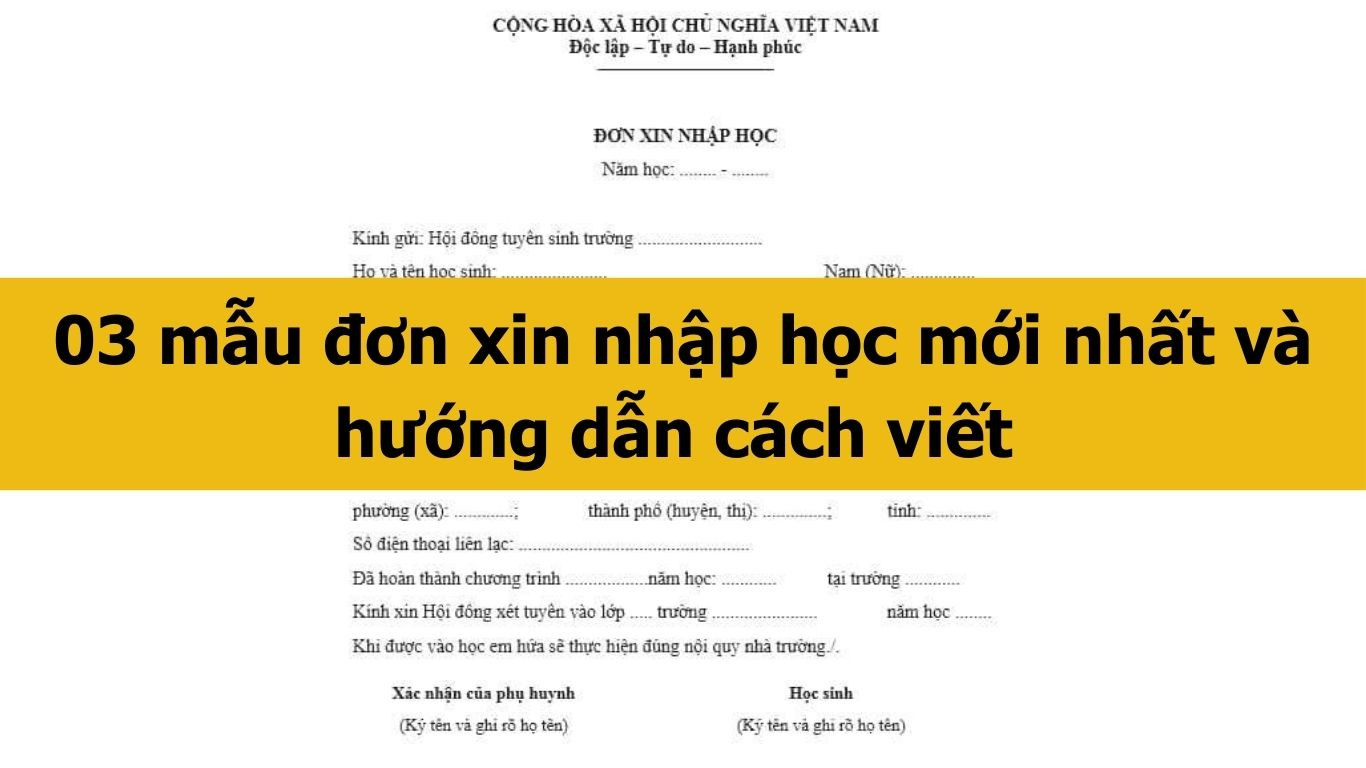
03 mẫu đơn xin nhập học mới nhất 2025 và hướng dẫn cách viết
Hiện nay, để chuyển đổi các cấp học trong hệ thống giáo dục Việt Nam thì ngoài các tiêu chuẩn về trình độ, nhận thức còn có một thủ tục trước khi nhập vào các cấp học là phải có đơn xin nhập học. Nhiều phụ huynh, học sinh còn phân vân chưa biết sử dụng mẫu đơn xin nhập học nào cho đúng. Qua bài viết này, chúng tôi sẽ giúp các bạn có được các mẫu đơn xin nhập học mới nhất và phù hợp. 20/01/2025Các hành vi bị nghiêm cấm với học sinh mới nhất 2025
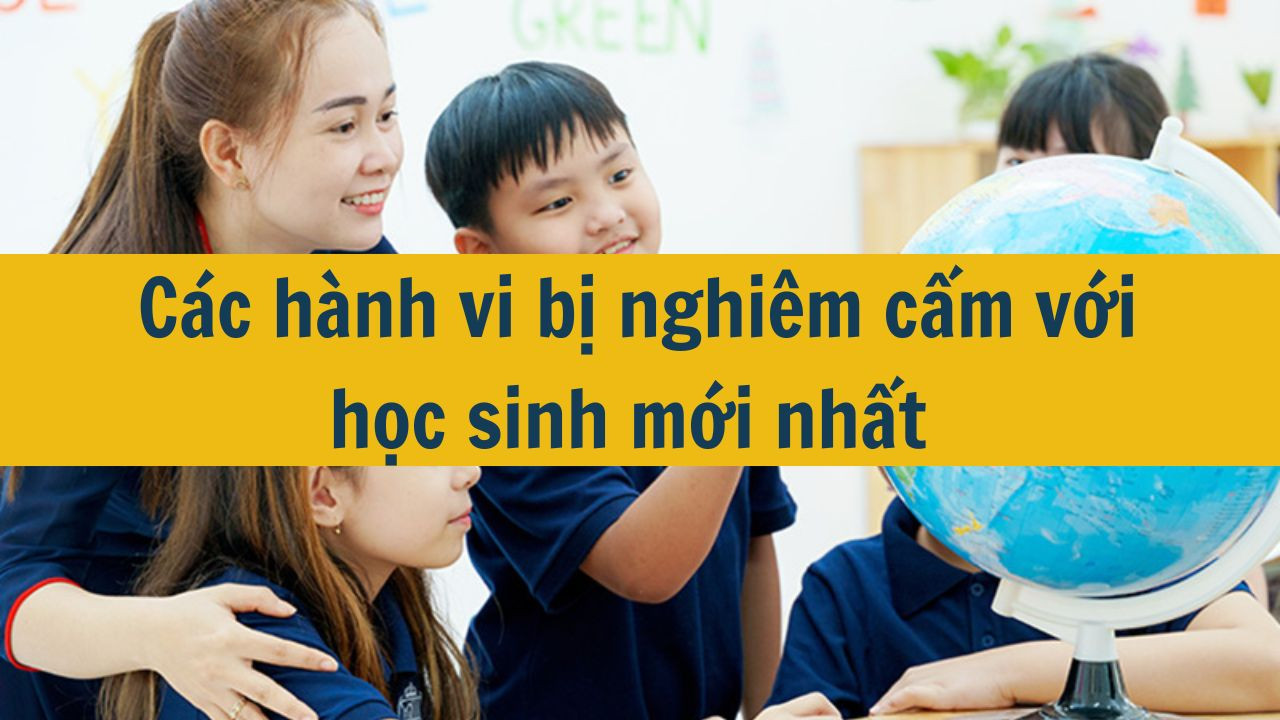
Các hành vi bị nghiêm cấm với học sinh mới nhất 2025
Bản cam kết học sinh được sử dụng phổ biến trong nhà trường, văn bản này giúp học sinh đặt ra các mục tiêu phấn đấu trong học tập để có động lực cố gắng. Các hành vi bị nghiêm cấm với học sinh mới nhất 2025. Bài viết sau đây sẽ làm rõ về các vấn đề này 14/01/2025Cách viết bản cam kết không tái phạm cho học sinh mới nhất 2025
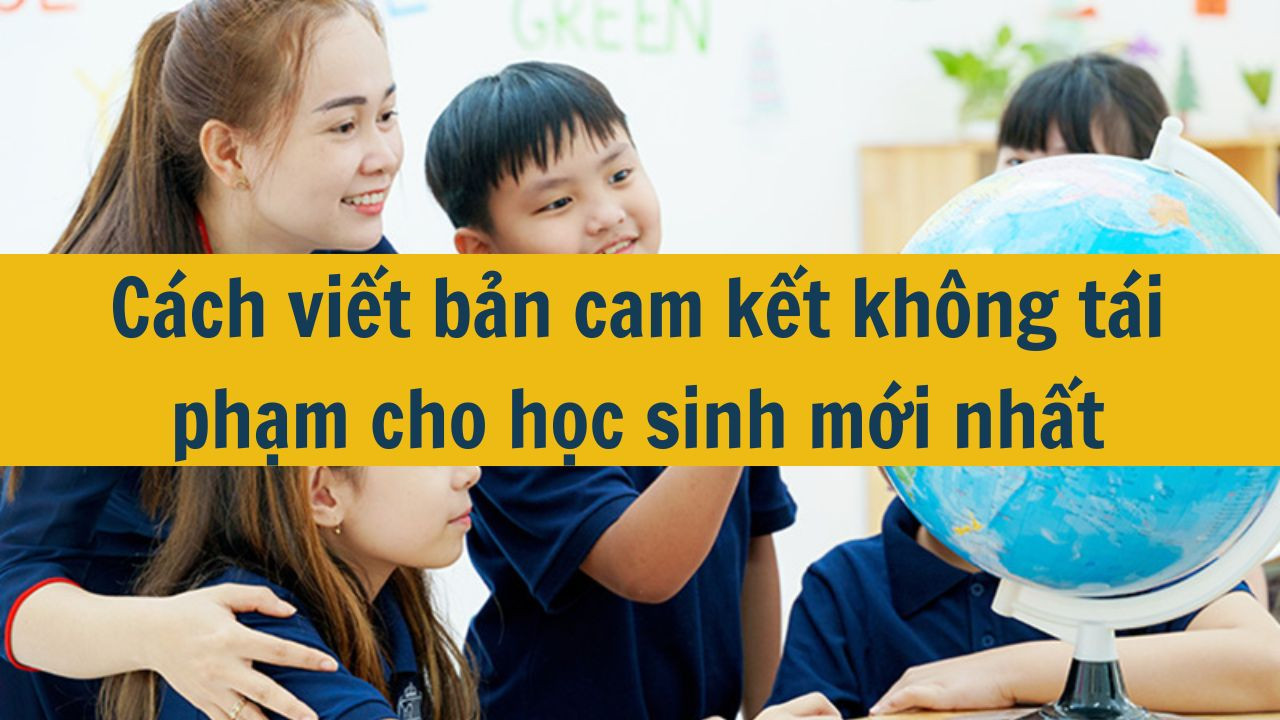
Cách viết bản cam kết không tái phạm cho học sinh mới nhất 2025
Bản cam kết học sinh được sử dụng phổ biến trong nhà trường, văn bản này giúp học sinh đặt ra các mục tiêu phấn đấu trong học tập để có động lực cố gắng. Vậy cách viết bản cam kết không tái phạm cho học sinh mới nhất 2025? Bài viết sau đây sẽ làm rõ về các vấn đề này. 14/01/202505 Mẫu bản cam kết của học sinh mới nhất 2025
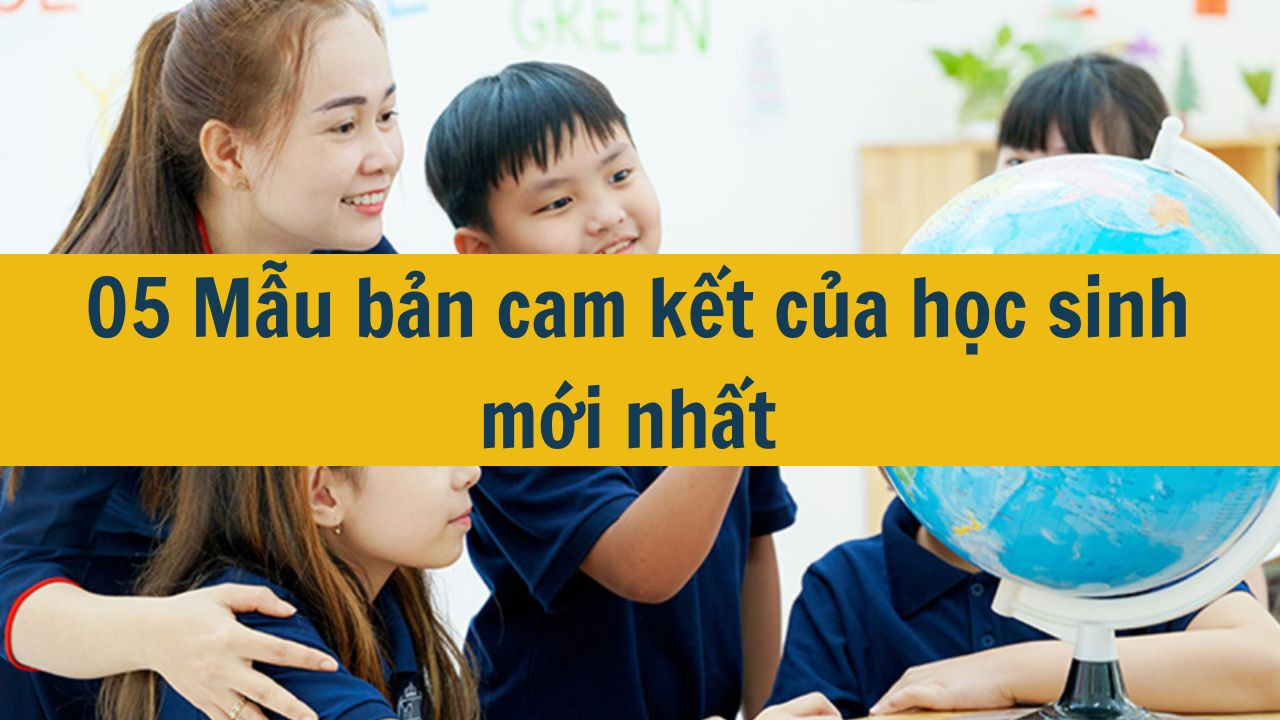
05 Mẫu bản cam kết của học sinh mới nhất 2025
Bản cam kết học sinh được sử dụng phổ biến trong nhà trường, văn bản này giúp học sinh đặt ra các mục tiêu phấn đấu trong học tập để có động lực cố gắng. 05 mẫu bản cam kết của học sinh mới nhất 2025. Bài viết sau đây sẽ làm rõ về các vấn đề này 11/01/2025Năm 2025 học giáo dục thường xuyên có bằng cấp 3 không? Bằng tốt nghiệp giáo dục thường xuyên có giá trị như bằng tốt nghiệp trung học phổ thông không?
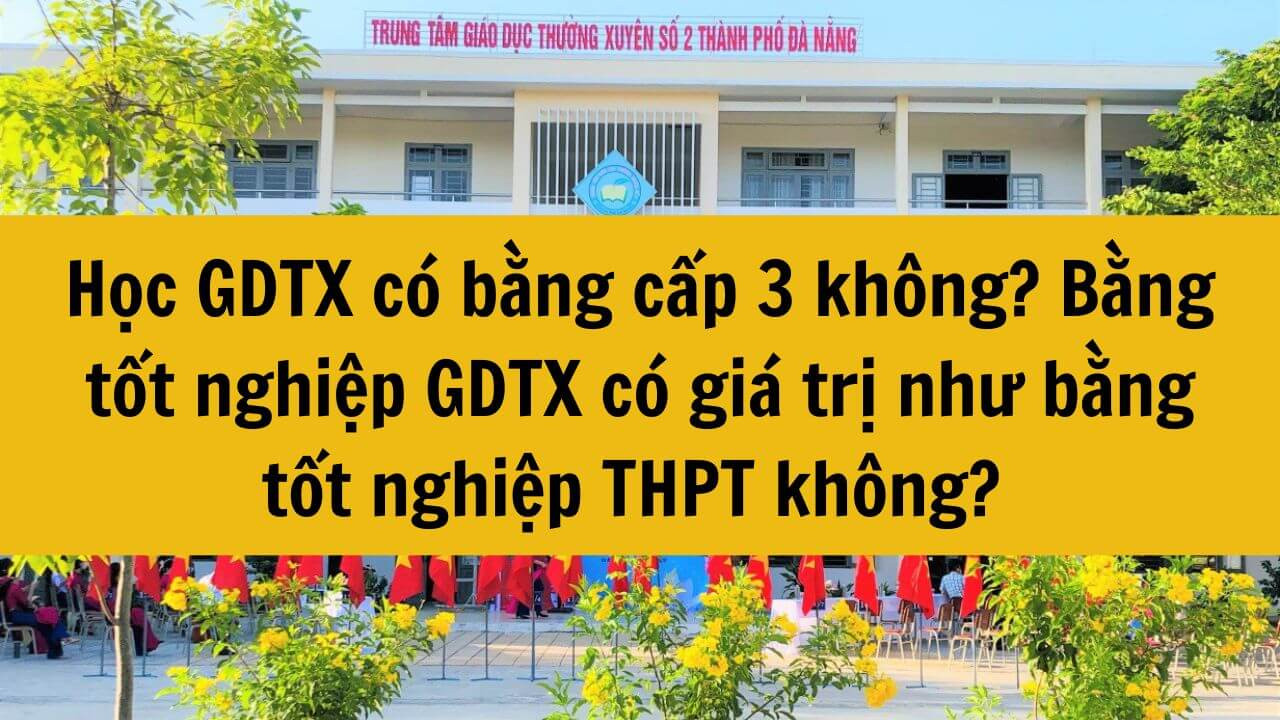

 Luật giáo dục 2019 (Bản Word)
Luật giáo dục 2019 (Bản Word)
 Luật giáo dục 2019 (Bản Pdf)
Luật giáo dục 2019 (Bản Pdf)